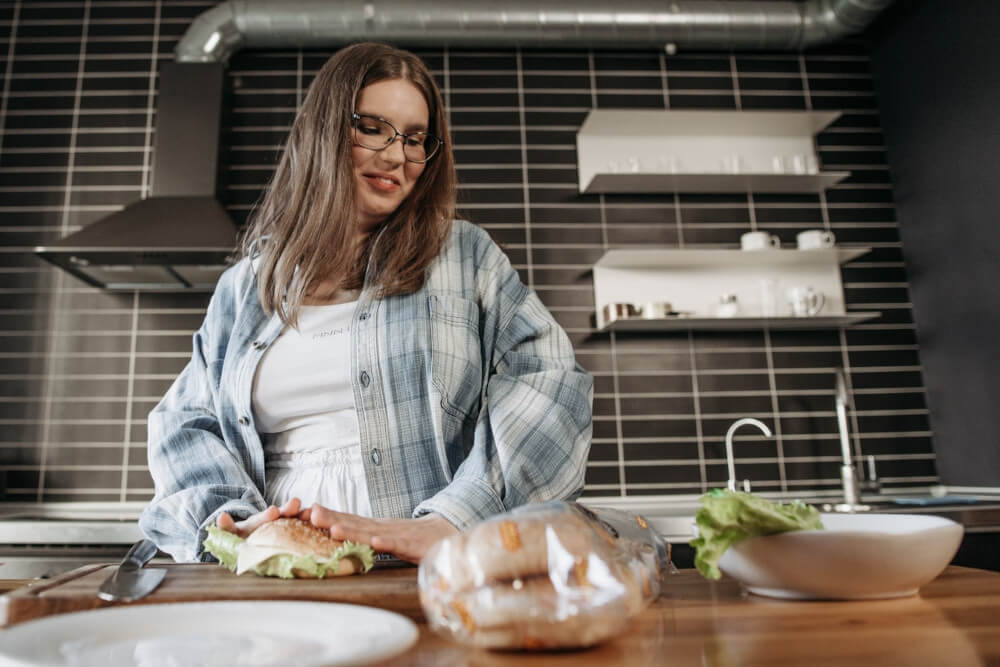
On a busy day, food can easily add up. Here are some tips for saving money on groceries.
Mobile shopping list
- Preparation pays off
- Food can quickly add up. Fortunately, there are several things you can do to keep food costs down.
- Planning and organization are key ingredients in keeping food costs down, whether you’re shopping, cooking, or cleaning up after yourself.
- Make your own food
- If you need food fast, fast food and take-out are tempting. But cooking at home saves a lot of money.
- If you have a freezer, you can make large portions of food and freeze it. So you have ready-made meals for busy days.
- Food clubs are a great way to socialize, eat well, and save money. Food is often cheaper when shared, as large portions are often cheaper than small portions.
Budget for food: Set a limit.
- A food budget helps keep track of food costs.
- Set a weekly or monthly budget for food. Withdraw your weekly allowance and only buy with cash, or set up a food-only budget account.
- Have a basic food warehouse so you can always cook
- Stocking up on basics is wise.
- If your food budget runs out before the month is up, a basic stock of long-lasting foods will always allow you to cook without going over budget.
A basic warehouse might include:
- Rice, flour, oats and other dry foods
- ketchup, mustard, vinegar
- Beans, chickpeas, tuna, peeled tomatoes
- frozen peas, green beans, spinach, and corn
Avoid grocery shopping
Weekly meal plans allow you to shop once a week. In this way, you avoid many small purchases that are tempting.
A meal plan also reduces food waste by planning how to use leftovers from one meal in another.
Save money by avoiding meat.
Meat is a costly ingredient. Having meat-free days during the week saves money.
Vegetables and beans can also be used to replace meat in recipes like meat sauce and meatballs. It is also tasty, filling, and healthy.
Avoid costly impulse purchases
Planning is essential if you want to avoid overbuying.
Make a shopping list or take pictures of your fridge, cabinets, and table. So you can control what you have and what you don’t.
Remember to bring shopping nets to the supermarket. Buying new bags for 3 kroner every time you shop benefits both the environment and your wallet.
Consider it and compare prices.
Offer papers often have great deals. Remember that the more stores you visit, the more temptations you will face. Buy more than you intended.
Volume discounts are tempting, but what if you can’t use 3 kilos of beef or 20 fruit? If you have freezer space, you can save money by buying in bulk and freezing what you don’t use.
Items are often dated because they must be used that day or the next. Consider using the food before it spoils. If you can do that, you’ll save money and avoid food waste.
Avoid supermarkets:
The supermarket is designed to make you want to buy as much as possible. So be mindful and critical when shopping. Compare prices per kilo. It shows the actual price difference per kilo.
In fact, yellow signs are often just a store’s way of getting your attention. Ensure it’s an offer – and a good one for you before you commit.
Foods displayed at eye and roof height are often the most expensive and rare. These are the ones most people pick. Look down, as the low-cost items are often at the bottom of the shelf.
Food waste: Save money by avoiding it
Food waste is costly. After all, wasting food is wasting money.
Keeping track of your fridge contents can help you avoid wasting food.
Cook first what needs to be used. It can be used to create exciting new classic dishes.
Use leftovers:
Even small leftovers can be refrigerated in a suitable container. For example, use 2-3 potatoes in a salad or bread dough the next day. Meat sauce can be put in tortillas or on pizza. Let your imagination run wild.
Pack leftovers for lunches.
- Home-made lunches are much cheaper than canteen food or supermarket salads.
- If you don’t like rye bread meals, make sure you have leftovers from dinner. Because taste develops over time, leftovers can taste better the next day.
Keep food in the freezer.
The freezer is good for bulk purchases.
Remember to repackage food in freezer bags or buckets and label it with the contents and date. Then you can keep track of your freezer’s contents and use it before it expires. No money is saved otherwise.
